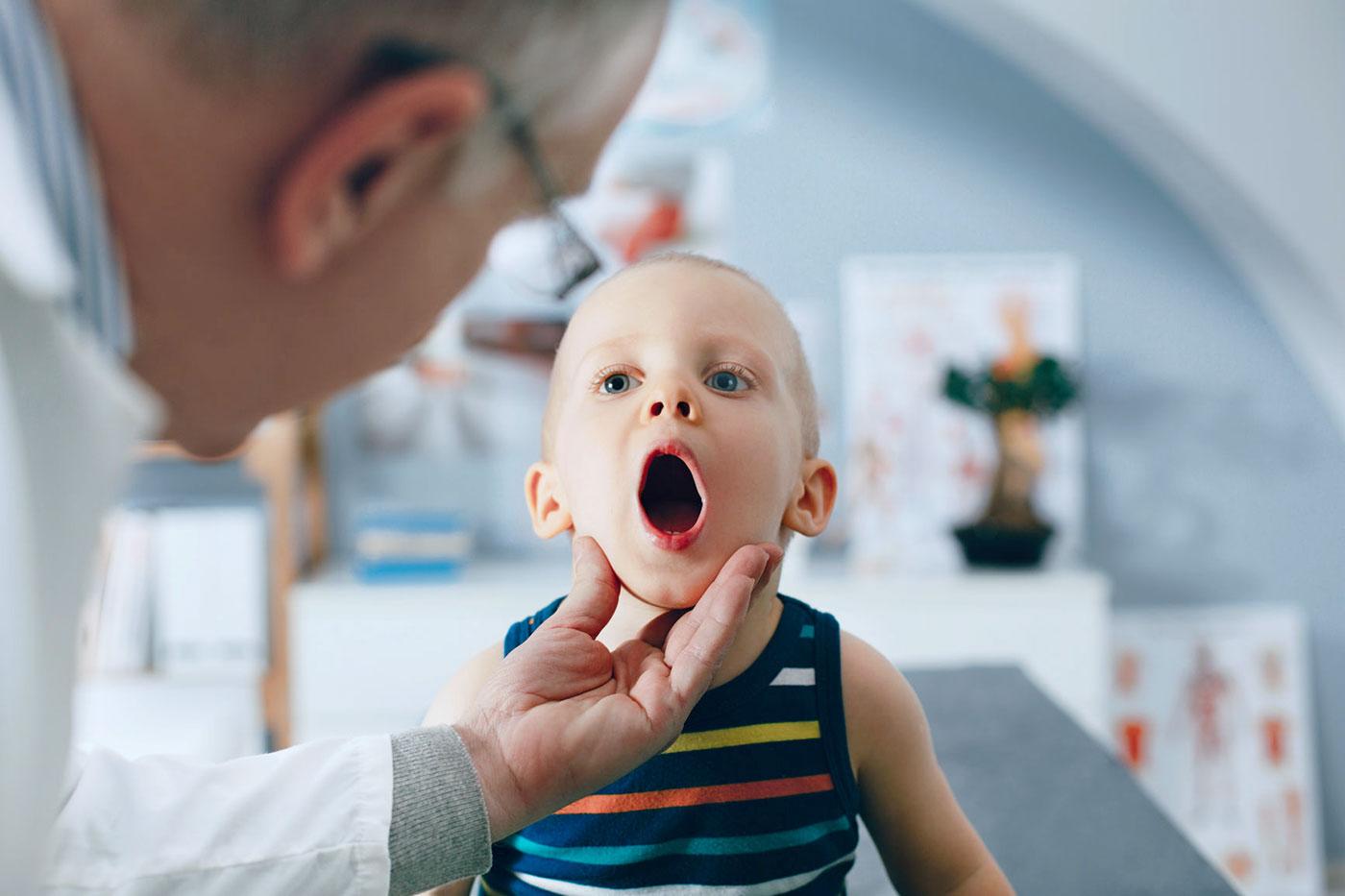TODDLER
What to Do If Your Child Swallowed a Foreign Object
Kids love to use their mouths to explore the world...but that can prove dangerous! Here’s how to prevent children from swallowing foreign objects—and how handle it if they do!

Written by
Dr. Harvey Karp

It’s practically a rite of passage for parenthood…that moment when your child swallows something they’re definitely not supposed to swallow. Usually, the offending object will pass through your bub’s system without causing any problems, but not always. In fact, a recent study showed that over 759,000 children under the age of 6 ended up in the emergency room between 1995 and 2015 after swallowing objects. So, what should you do if your child swallows a foreign object? Here’s your guide.
What objects are kids swallowing?
The object that was swallowed most often was (unsurprisingly) coins. Toys were second, jewelry third, and batteries took fourth place. But a brand-new report in the journal Pediatrics found that fourth-place batteries are quickly moving up the most-swallowed list. Researchers note that there were more than twice the number of pediatric battery-related ER visits from 2010 to 2019 compared with 1990 to 2009—a majority in children under 5 and involving dangerous button batteries.
Who’s in danger of swallowing foreign objects?
According to the first study, boys were more likely to end up in the ER than girls. Researchers also found that children who were only 1 year old were the most likely to swallow foreign objects. That means around this age, parents will want to be extra vigilant, so they never have to utter the words, “You swallowed what?!”
Why is my child trying to swallow random objects?
It’s not surprising that so many kids end up swallowing something other than food…kids love to use their mouths to explore the world! The act of children and babies placing EVERYTHING into their mouth is referred to as “mouthing.” This is how they learn to develop and sharpen their senses—and give parents extra anxiety…
How do I know if my child swallowed something?
Your child may show no symptoms if they swallowed a foreign object. However, some telltale signs and common symptoms if they swallowed a foreign object include:
- Coughing
- Drooling
- Bloody saliva
- Gagging
- Abdominal pain
- Fever
- Refusal of food, and even vomiting
How long can it take for a child to pass something they swallowed?
If your child has swallowed a foreign object, but is showing no symptoms, then you often can wait until the ingested object passes. (Batteries and magnets are an exception.) The good news is that most foreign objects will pass through harmlessly within three days. Just make sure to check every stool during that time frame to be sure. Of course, never hesitate to call your pediatrician for guidance.
Should you seek medical attention?
Luckily, when it comes to many small objects, children can usually pass the object through a bowel movement within a few days. In fact, to investigate this, one group of especially, um, committed researchers in Australia took it upon themselves to test this theory by swallowing Lego heads. Five of the six participants (who were pediatric healthcare professionals) were able to find the Lego head in their stool within one to three bowel movements (as to where the sixth went remains a mystery, but they think it's possible it just went overlooked!). Their conclusion? Parents can feel reassured that small objects similar to Lego heads to pass without incident within three days.
However, if your child has swallowed a battery, a magnet, or is vomiting, having trouble breathing, or experiencing stomach pain, they need to be taken to the emergency room, ASAP.
What do I do if my child swallows a battery?
If your child swallows a battery, call poison control or the National Battery Ingestion Hotline at 800-498-8666—and seek emergency medical attention immediately. Batteries can cause chemical burns and when button or coin batteries lodge in the esophagus, serious damage to the windpipe, lungs, and large blood vessels can strike in as little as two hours. This type of injury can quickly become life-threatening.
If the battery in question is a button or lithium coin battery—and you have honey in your home—the American Academy of Pediatrics (AAP) advises parents to give your child 2 teaspoons of honey to help protect delicate tissue in the esophagus and slow the development of injury. You can give up to six doses about 10 minutes apart. But don’t offer anything else to eat or drink and if your child throws up, don’t give another dose. The caveats: You child needs to be over 1 year old and able to swallow liquids. And offering honey cannot impede your speedy transport to the ER.
What do I do if my child swallows a magnet?
If you think your child swallowed a magnet, call your doctor or go to the ER right away. High-powered magnets that are used in common household items like vacuums, washing machines, and certain toys pose a great danger to children. (Small magnets that can be sculpted into different shapes are high-powered magnets, FYI.) If your kiddo swallows more than one of these magnets, they can pull together in your child’s digestive system with enough force to cause serious damage. In fact, a 2022 study found about 56% of children who swallowed or inserted magnets required hospitalization and about 10% experienced a life-threatening injury such as bowel obstruction or twisted intestines.
Steps to Prevent Swallowing Objects
To keep your child from swallowing objects in the first place, make sure to childproof when possible. If you have a junk drawer—and let’s be real, who doesn’t?!—use handy magnets like these to keep the drawer closed. That way, even when your child learns how to open drawers, they can’t get into the one with loose change and tacks.
For small toys, try to choose ones that don’t have small detachable parts. That’ll help you worry less about your child swallowing a part of the toy…and it’ll make clean-up easier! And if you have any high-powered magnet sets at home, the AAP urges families to get rid of them.
Always keep batteries in a secure location that children cannot reach like a high shelf with a magnetic lock on it and only buy batteries in child-resistant packaging. Also, make sure battery compartments are secure, especially for commonly used items like remote controls and electric toothbrushes. Consider taping them shut for an additional layer of security.
For more on child safety, check out…
- 10 Household Objects to Keep Out of Baby’s Reach
- How to Help a Choking Child
- Keep Your Family Safe With These Fire Safety Tips
- How to Prevent Accidental Hot Car Death
- Preventing Choking in Little Ones
Disclaimer: The information on our site is NOT medical advice for any specific person or condition. It is only meant as general information. If you have any medical questions and concerns about your child or yourself, please contact your health provider.
SHARE THIS ARTICLE
MOST LOVED
Sleepytime Sidekicks












